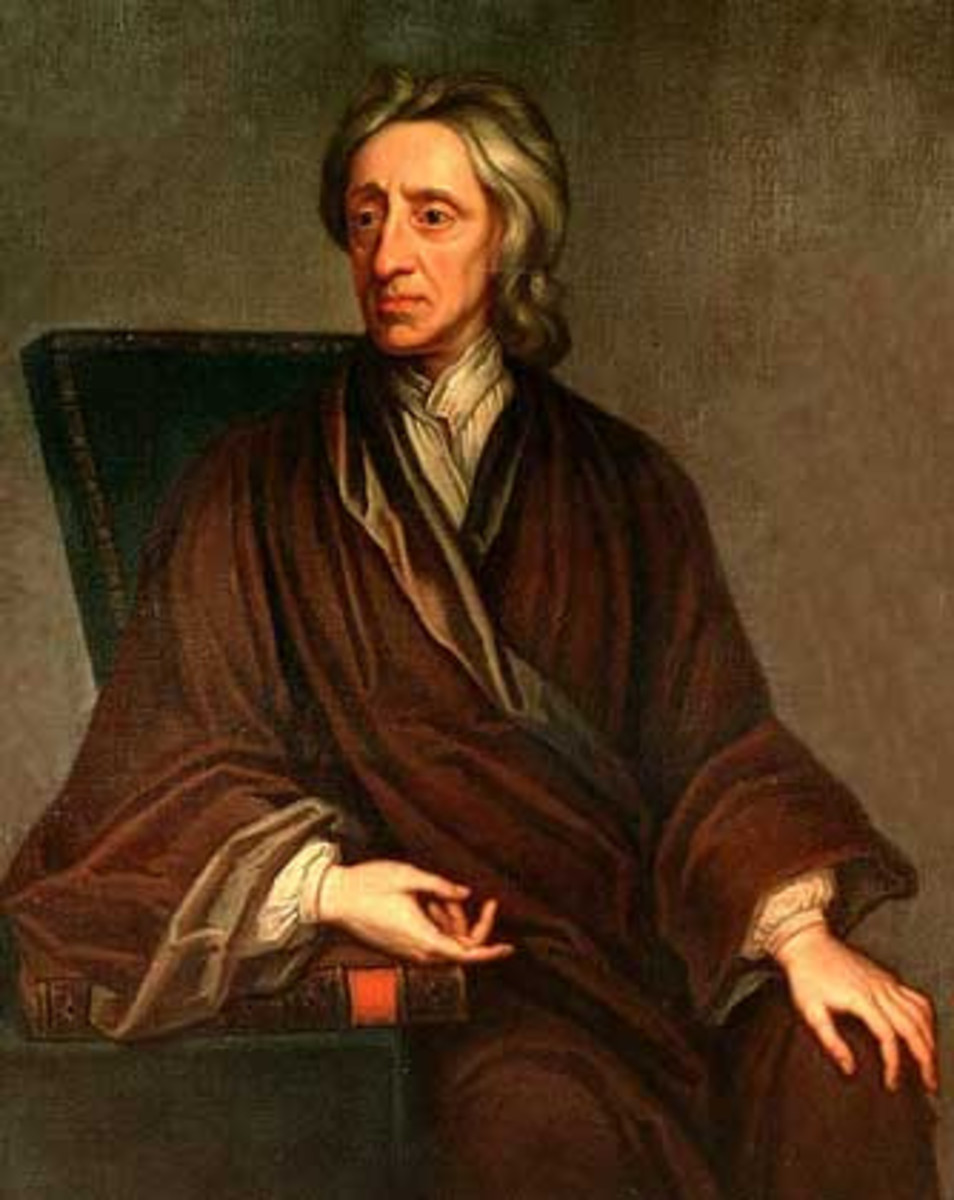Historical Laboratory Projects
Empiricism – Freeman
Among all the methodologies or “houses” of history, one of the oldest and most influential is empiricism. Originating in the halls of European universities, it’s a school of thought based in the understanding of history as a rigid science rather than an artistic discipline. The core philosophy of empiricism can be summarized in three primary tenets: rigorously examining verified historical evidence, conducting research which lacks any personal opinion or bias, and reasoning inductively from specifics to generalities.[1] Although this philosophy has been criticized in the historical community, empiricism has greatly impacted the way historical writing is conducted and continues to do so today.
Empiricism arose from the Scientific Revolution that began in the 16th century. It began as the more general philosophy that knowledge is derived via tangible experience, and that science is advanced via observation and experimentation. This view was first espoused by Francis Bacon.[2]  As the Scientific Revolution gave rise to the Age of Enlightenment, Bacon’s philosophical theory of empiricism was expanded upon and defended by famous Enlightenment thinkers such as John Locke.
As the Scientific Revolution gave rise to the Age of Enlightenment, Bacon’s philosophical theory of empiricism was expanded upon and defended by famous Enlightenment thinkers such as John Locke.
Empiricist theory continued to be a leading topic of discussion for European intellectuals for several hundred years, but it wasn’t until the 19th century that leading figures in the field of history began taking an approach in line with empiricist philosophy. Among the first of these figures was German historian Leopold von Ranke.  Ranke began his career in higher education at Germany’s University of Leipzig.
Ranke began his career in higher education at Germany’s University of Leipzig. 
His chosen field was not history, however, but rather theology and classics, influenced by his devout Christian faith and being born into a family consisting partially of Lutheran pastors. He became interested in history during his time as a secondary school teacher, hoping to find God’s presence and influence in historical events.[3]
In 1825, after publishing some early historical work, Ranke received a professorship at the University of Berlin, where he would spend the remainder of his career.  At the time he took up his position, history was seen as something to be studied as a hobby or part of a larger discipline. Studying it for its own sake was a little respected practice in academia. Ranke helped to remove this stigma by creating a standardized, scientific approach to historical study based in four principles: moral objectivity, trusting the facts above all else, seeing the uniqueness in historical events rather than their similarities to each other, and impartiality in the reference of political sources.[4]
At the time he took up his position, history was seen as something to be studied as a hobby or part of a larger discipline. Studying it for its own sake was a little respected practice in academia. Ranke helped to remove this stigma by creating a standardized, scientific approach to historical study based in four principles: moral objectivity, trusting the facts above all else, seeing the uniqueness in historical events rather than their similarities to each other, and impartiality in the reference of political sources.[4]
But Ranke didn’t only change the way in which history was studied and written. He also changed the way in which it was taught. At the time, historical study consisted mostly of lectures wherein students were told about events of the past but not how to effectively write about those events. Ranke attempted to rectify this by creating the seminar system. His students would discuss their work in small groups with the goal of including as many opinions and critiques as possible. Historians welcomed this new system, as it allowed them to have their work judged by multiple people who were known to be well-versed in the discipline.[5] This gave them increased confidence in the validity of their interpretation of history and further satisfied Ranke’s desire for objectivity.
For several decades, Ranke continued publishing a variety of historical works using his signature empiricist methods, never wavering even after his retirement from the university in 1871. Although his work was not universally praised, it was undoubtedly influential. His publications were frequently discussed in the historical community, and in 1865 he was ennobled by the German government, leading to the word “von” being added to his name. He continued writing and publishing all the way until his death in 1886 at the age of 90.[6]
One of the first historians to expand upon and defend an empiricist view of history in line with Ranke’s was J.B. Bury.  Being born to well-educated parents, Bury’s academic pedigree was considerable. He studied classics at the University of Dublin’s Trinity College, where he graduated with honors and was elected a fellow a mere three years later.
Being born to well-educated parents, Bury’s academic pedigree was considerable. He studied classics at the University of Dublin’s Trinity College, where he graduated with honors and was elected a fellow a mere three years later. 
He remained at Trinity for 17 years, taking up a chairmanship in 1893 before leaving in 1902 to be appointed regius professor of modern history at the University of Cambridge, a position he held for the remainder of his life.[7] 
In terms of temporal focus, Bury is remembered for his wide array of work on Ancient Rome and other European empires. But methodologically, he is famous for believing as literally as possible that history as a field is a science, not an art. This is the central thesis of Bury’s widely cited lecture entitled, aptly enough, “The Science of History.” Delivered in January of 1903 as his inaugural address at Cambridge, the lecture is dedicated to Bury explaining and defending his view of the field of history. The first part of the speech sees him lament that history has rarely been viewed as a science, especially before the 19th century, and he later takes time to specifically recognize Ranke’s contributions to the field and its standards of objectivity.
There’s a quote in the middle of the lecture that is especially well-known and that summarizes Bury’s argument very well. During the speech, he implores his audience that “history is not a branch of literature. The facts of history…for manifest reasons…lend themselves to artistic representation far more readily than those of the natural sciences; but to clothe the story of a human society in a literary dress is no more the part of a historian…than it is the part of an astronomer…to present in an artistic shape the story of the stars.”[8] This belief continued to dictate how Bury wrote and taught history until his death in 1927 at the age of 65.
Today, empiricist history is the subject of a certain degree of criticism. The fact that multiple historical methodologies exist means that the original one, empiricism, would inevitably fall under some scrutiny. But the content and severity of that criticism varies a fair bit depending on the individual historian as well as which methodology that historian happens to subscribe to. Regardless of those details, however, the issues that some historical scholars have with empiricism have not been able to render the methodology obsolete. Countless historians have considered themselves empiricists since the days of Ranke and Bury, and the methodology is still very much in use today among others.
But empiricism’s current popularity extends even further. While methods of historical writing are numerous and vary a great deal, the research method of choice for historians is almost always empiricism.[9] One could attribute this to empiricism having some objective value that historians inherently recognize, but another possible explanation is that empiricism, despite being rooted in rigid, scientific tenets, has itself changed over time. The methods used by current empiricist historians are not the same as the ones Ranke developed nearly two centuries ago in Berlin. A prime example of this is that reliable secondary sources are now seen as perfectly acceptable for use in historical writings, even by empiricists, while Ranke always insisted on primary sources exclusively.[10]
Adhering to an empiricist methodology hasn’t always meant the same thing within the study of history, nor is it universally practiced like it once was. But empiricism’s heavy use in current historical writing and its almost universal use in historical research indicates that most historians see at least some value in empiricism’s drive for objectivity. And regardless of where one stands on the practice, it’s undeniable that empiricism was instrumental in history becoming a respected academic discipline, allowing historians to make a career out of studying what they love: the past.
Footnotes
[1] Anna Green and Kathleen Troup, Houses of History, Manchester University Press, 2016, 3
[2] Department of Psychology, “Empiricism: The influence of Francis Bacon, John Locke, and David Hume”, Sweet Briar College, 2013
[3] Rudolf Vierhaus, “Leopold von Ranke”, Encyclopedia Britannica, 2022
[4] Richard Hughes, “Professional History: The legacy of Leopold Von Ranke”, University of New Mexico, 2016
[5] Richard Hughes, “Professional History: The legacy of Leopold Von Ranke”, University of New Mexico, 2016
[6] Rudolf Vierhaus, “Leopold von Ranke”, Encyclopedia Britannica, 2022
[7] Gloria Lotha et al, “J.B. Bury”, Encyclopedia Britannica, 2022
[8] “The Science of History”, J.B. Bury, Cambridge University Press, 1903, 16-17
[9] Anna Green and Kathleen Troup, Houses of History, Manchester University Press, 2016, 1
[10] Anna Green and Kathleen Troup, Houses of History, Manchester University Press, 2016, 2
Image Citations
- Alice Linsley, “Francis Bacon on Athiesm”, Blogspot, 2016
- Mwenda Eric, “John Locke the Philosopher (1632 – 1704)”, HubPages, 2016
- Siddhesh Joshi, “Leopold von Ranke”, Alchetron, 2022
- Reddit.com
- Blogspot.com
- Pinterest.com
- Aaron Barry, “Trinity College – Everything you need to know and fun facts”, Davenport Hotel, 2018
- GetYourGuide.com
